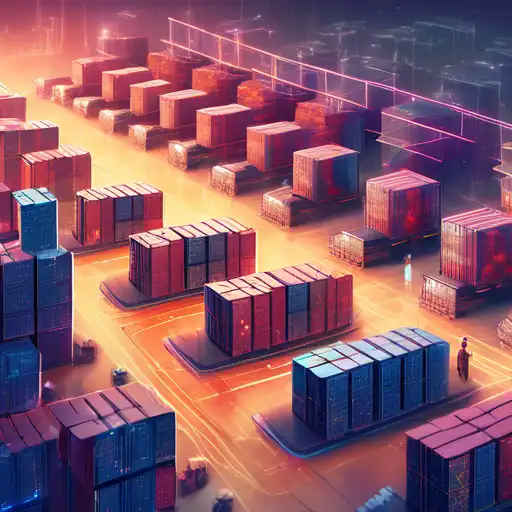The Transformative Power of Blockchain in Modern Supply Chains
In the digital age, blockchain technology is emerging as a revolutionary force in transforming supply chains across industries. By offering unparalleled transparency, security, and efficiency, blockchain is setting new standards for how goods are tracked and transactions are recorded. This article delves into the myriad ways blockchain is reshaping supply chains, offering businesses and consumers alike a glimpse into a more secure and efficient future.
Understanding Blockchain in the Supply Chain
At its core, blockchain is a distributed ledger technology that allows data to be stored globally on thousands of servers while letting anyone on the network see everyone else's entries in real-time. This makes it incredibly difficult for one user to gain control of the network or manipulate the data. In the context of supply chains, this technology offers a transparent and immutable record of transactions, from the origin of raw materials to the final product in the hands of the consumer.
Key Benefits of Blockchain for Supply Chains
The integration of blockchain into supply chains brings several key benefits:
- Enhanced Transparency: Every transaction or movement of goods is recorded on a blockchain, providing a clear and unalterable history of the product's journey.
- Improved Security: The decentralized nature of blockchain makes it highly resistant to fraud and cyberattacks.
- Increased Efficiency: By automating and streamlining processes, blockchain reduces the need for intermediaries, cutting costs and speeding up transactions.
- Better Traceability: Companies can quickly trace products back to their source, which is invaluable in the event of a recall or when verifying the authenticity of goods.
Real-World Applications of Blockchain in Supply Chains
Several industries are already leveraging blockchain to enhance their supply chains. For example, in the food industry, blockchain is used to track the journey of products from farm to table, ensuring food safety and quality. In the pharmaceutical sector, it helps in combating counterfeit drugs by verifying the authenticity of medications. The fashion industry uses blockchain to prove the ethical sourcing of materials, appealing to environmentally conscious consumers.
Challenges and Considerations
Despite its potential, the adoption of blockchain in supply chains is not without challenges. Issues such as scalability, interoperability between different blockchain systems, and the need for widespread industry adoption must be addressed. However, as technology advances and more businesses recognize its benefits, these hurdles are likely to be overcome.
The Future of Blockchain in Supply Chains
As blockchain technology continues to evolve, its impact on supply chains is expected to grow exponentially. With advancements in smart contracts and IoT integration, the potential for creating fully automated and self-regulating supply chains is on the horizon. The future promises not only enhanced operational efficiency but also a new level of trust and collaboration between all stakeholders in the supply chain.
In conclusion, blockchain is revolutionizing supply chains by introducing unprecedented levels of transparency, security, and efficiency. As businesses continue to explore and adopt this technology, the way we think about and manage supply chains is set to change forever. For those interested in staying ahead in the digital transformation journey, understanding and leveraging blockchain technology is no longer optional but essential.
